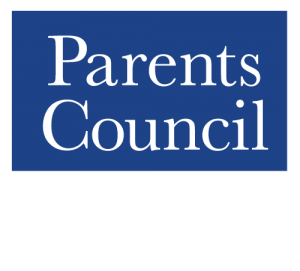The Parents Association Presidents first spoke of how to recruit volunteers for various school projects and events. Of special interest is how to effectively reach out to new families to encourage them to participate in Parents Association programs. Often there is a core group of parents who frequently volunteer, and the challenge is how to recruit a larger and more diverse group of parent volunteers. Many recommendations were discussed, including:
- Send out letters via email and US mail to new families in the spring and summer to invite them to participate in PA programs.
- Send a summer mailing of volunteer opportunities to all families requesting volunteers.
- Maintain a listing of all Parents Association Committees and activities on the school website along with descriptions to encourage parents to volunteer online.
- Host a PA volunteer table at school Orientation and Open House events.
- Assign mentor families to welcome new families and to encourage them to volunteer in activities of interest to them.
- Work with the school administration, development staff and teachers to identify families with special interests and/or talents that could be helpful to the Parents Association. Follow-up with the Admission Office to further identify prospective parent volunteers.
- Create volunteer opportunities that allow parents to share responsibilities and chairmanships, rather than assuming them individually. Offer volunteer slots with limited time commitments to allow parents to help when possible.
- Remember to thank parent volunteers and committee chairs for their participation and leadership. Recognize volunteers in school publications when possible. Send personal notes to parents to thank them for their service to the school.
The discussion among the Parents Association Presidents continued on the topic of effective PA communications. Most schools rely primarily on email and online communications to reach out to parents. Parents Association Presidents spoke of using “push pages” and even yahoo groups to share information with parents on various activities. Yet, some PA Presidents reminded others that personal phone calls can create a spirit of inclusiveness within the parent body of a school.
PA Presidents talked about successful approaches for encouraging active involvement by a wider range of parents within the school community. Parents Associations have hosted Welcome Back Picnics, International Nights and International Bazaars. Often these events are attended by parents who do not traditionally attend PA activities. They also spoke of the need to reach out to fathers and create volunteer and leadership opportunities for them. Some Parents Associations have hosted PA Meetings in the evenings, in an effort to make it easier for all working parents to attend. Several schools provide babysitting for parents of young children.
Budgeting and financial issues given these economic times were timely topics for the Parents Association Presidents. Most Parents Associations assess membership dues as a line item on the tuition bill. These dues are generally optional and are on a per family basis. Some Parents Association Presidents contact families who have not sent in their dues payments to encourage them to contribute. In most cases, these dues are separate from individual class fund donations, which are used for student based activities such as class parties. Parents Association Presidents try to inform parents of the important funding allocations for their annual dues. Some Presidents consult with the School Heads in developing PA budgets, while others are more autonomous.
Another important issue facing Parents Association Presidents is the role of their organizations in the fundraising efforts of the school. Some Parents Associations do not actively participate in fundraising programs, while others rely heavily on them as a source of income. This is especially important to those Parents Associations which purchase capital items for their schools. Some PA Presidents spoke of the need for “friendraising” rather than “fundraising” and as a result are not involved in soliciting parents for financial contributions to the school. Others spoke of “gift wrap sales fatigue” and the concern that some parents do not wish to be “nickled and dimed” by their school’s Parents Association. However, many Parent Association Presidents were very interested in the current “grocery store” programs, which allow schools to receive significant financial rewards for purchases by parents and friends of their school.
In closing, the Parents Association Presidents found the open forum discussion of these many important issues helpful as they continue to plan programs for the 2009-2010 school year. They were encouraged to network with one another throughout the school year for additional information on relevant topics. The Parents Council of Washington will host another Parents Association Presidents Coffee and Open Discussion next spring for both outgoing and incoming PA Presidents.


